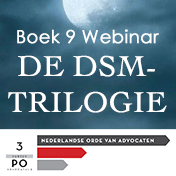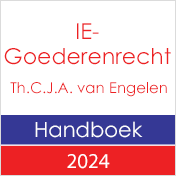
Beroep tegen het afgewezen nietigheidsverzoek tegen het uniebeeldmerk ‘VOGUE’ voor waren uit de klasse 3 (badartikelen, parfums). De interventie werd ingesteld door Trinity Haircare AG. De Kamer van Beroep wees het nietigheidsverzoek af omdat het merk niet descriptief werd geacht, noch zou er een gebrek aan onderscheidend vermogen zijn. Tevens zou Advance Magazine Publishers, houder van het uniebeeldmerk, niet te kwader trouw zijn geweest ten tijde van de registratie.
Het beroep wordt verworpen. Het Gerecht verwerpt de drie middelen die verzoeker heeft aangevoerd, te weten dat het merk descriptief zou zijn, dat er een gebrek aan onderscheidend vermogen zou zijn en dat de aanvrager te kwader trouw zou zijn. Er is niet voldoende bewijs aangevoerd om aan te tonen dat ‘VOGUE’ beschrijvend zou zijn voor badartikelen. Ook kan niet worden aangetoond dat het merk geen onderscheidend vermogen heeft. Dit middel berustte op een gebrek aan onderscheidend vermogen bij het litigieuze merk, hetgeen het Gerecht reeds in middel 1 heeft verworpen. In het derde middel voert de verzoeker aan dat de aanvrager te kwader trouw zou zijn, door het merk louter te registreren om het veilig te stellen zonder het daadwerkelijk te gebruiken. Het Gerecht bepaalt hierover dat er wederom te weinig bewijs is om dit aan te nemen. Zodoende wordt het beroep verworpen en blijft het litigieuze merk ingeschreven.
"24. Those conclusions should be upheld. There is nothing in the definition of the word 'vogue' which indicates that that word has a sufficiently direct concrete link to the goods in question to enable the public concerned immediately, and without further thought, to perceive a description of an essential characteristic of the goods in question or of one of their characteristics (judgment of 22 June 2005, PAPERLAB, T-19/04, EU:T:2005:247, paragraph 25). In respect of beauty products and baby care products, it is hard to see how the word 'vogue'is descriptive of those products whose characteristic function is care or beauty care, which does not fall within the area of fashion. In that regard, EUIPO, supported by the intervener, is entitled to state that beauty and care products are not fashion products, given that consumers buy them for their 'result, that is to say, the fact that the product moisturises well, deodorises well or produces a pleasant scent. In that connection, EUIPO rightly notes that the notion of fashion is connected with the goods at issue, in respect of which change is rarely linked to the change of season or year but rather to innovation, that is to say, the appearance of a new product in a position to satisfy the consumers' unmet needs. Therefore, fashion is not concerned with care and beauty products."
Lees het arrest hier.



























































